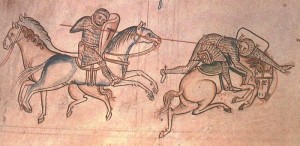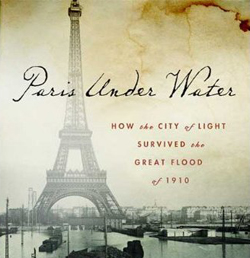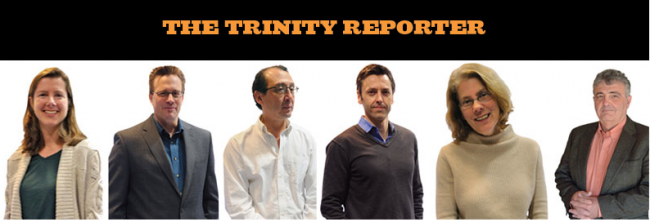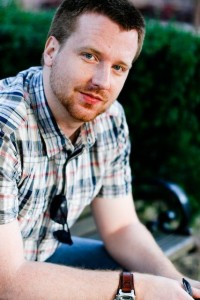“Faculty Highlights”: New book by Professor Zayde Antrim
 Routes and Realms: The Power of Place in the Early Islamic World (2012, Oxford University Press) examines early texts produced by Muslims during the ninth through eleventh centuries, paying specific attention to how the authors conveyed attachment to the lands in which they lived. This attachment created what Antrim describes as “widely resonant categories of belonging. “Representing plots of land as homes, cities, and regions in texts…was a powerful way to claim loyalty, authority, and belonging in the early Islamic world,” said Antrim, who teaches courses on Islamic civilizations, Middle Eastern history, nationalism, and geography. “I have always been interested in geography and the ways in which the geographical imagination shapes the way we see and act in the world.””
Routes and Realms: The Power of Place in the Early Islamic World (2012, Oxford University Press) examines early texts produced by Muslims during the ninth through eleventh centuries, paying specific attention to how the authors conveyed attachment to the lands in which they lived. This attachment created what Antrim describes as “widely resonant categories of belonging. “Representing plots of land as homes, cities, and regions in texts…was a powerful way to claim loyalty, authority, and belonging in the early Islamic world,” said Antrim, who teaches courses on Islamic civilizations, Middle Eastern history, nationalism, and geography. “I have always been interested in geography and the ways in which the geographical imagination shapes the way we see and act in the world.””
Read entire article HERE.
“Some Dark Age!” Thursday Common Hour Lecture: Kings, Knights, Poets, and Bankers by Richard W. Kaeuper

By Duncan F. Grimm (History major, class of 2015)
Thursday, 18 October, 2012 – Professor Richard W. Kaeuper of the University of Rochester discussed the Middle Ages with the Trinity community, asking the leading question that at one time or another all historians must face: Why is it important to study the past? While this question seems to plague (no Medieval pun intended) many academics, Kaeuper embraces the challenge. By the end of his lecture, he had fully illuminated the supposed Dark Ages, painting a picture of a pivotal society that had experienced a renaissance before the Renaissance. One of the most intriguing qualities of the Middle Ages, Kaeuper argued, was that comparative to our time, events seem to take place in slow motion, spanning years if not decades before a conclusion is reached. For historians, this pace of change offers a window often not found in an era so critical to the development of Western civilization and the character of the individual.
(more…)
Events: History Overshadowed: The Annual Philip C. F. Bankwitz Lecture in French History

By: Duncan F. McN. Grimm (History major, Class of 2015)
This past Thursday, October 4, Professor Jeffrey Jackson of Rhodes College delivered an informative and engrossing lecture on the flooding of Paris during the frigid winter of 1910. An event lesser known by the intellectual and commoner alike, Jackson further highlighted that this landmark event often becomes eclipsed by the volatile political climate of 20th century France, as well as the two subsequent devastating World Wars. Possibly because of its close temporal proximity to the Great War, some historians wonder if the common suffering and eventual surmounting of the flood led to a convergence transcending politics and social classes that enabled citizens of France to act similarly in the trauma of 1914-1918. Regardless of whether the two disaster-reactions are related or not, the fact remains that intensely divided citizens came together in a time of great danger to themselves and their city to help one another survive. Jackson examines through narrating Paris’ strife how this happened.
Photos: History Majors Abroad: Michael McLean in Cape Town, South Africa

Michael McLean is a junior majoring in History with a minor in African Studies. He is currently studying abroad in Cape Town, South. Here are some photos from his trip so far:
(more…)
In the News: The Cities Initiative

“Fueled by a desire to probe the connections between cities in this country and abroad, Trinity has launched a co-curricular initiative this academic year, “Cities: Global Urban Experience across Time & Space.” The lead professors are Dario A. Euraque, professor of history and international studies, and Garth Myers, Paul E. Raether Distinguished Professor of Urban International Studies. The half-credit course (COLL-131-01) is affiliated with 19 courses having urban themes. They include seven first-year seminars.
(more…)
History Faculty featured in The Trinity Reporter (Summer 2012)
Brianna Diaz of the Trinity Reporter (Spring/Summer 2012) published a feature on 6 faculty members of History Department to discuss writing history. She writes: “In 2012, four faculty members from Trinity’s History Department expect to publish new books. Additionally, two books published by history faculty during the past few years continue to be met with critical acclaim and translated into new languages. The Reporter asked each of these faculty members to comment on their books.” Read entire feature HERE.
(more…)
Prof. Bayliss’s Japan Travel Blog, Summer 2012
 “I’m back in Japan after a year away, and thus the blog is back too, after a long hiatus,” wrote Prof. Bayliss in late July. “My itinerary this time has me in Tokyo first, after which I will head back up north for another round of volunteer work plus interviews with a variety of people about their experiences on 3/11 and since, and their concerns (and hopes) for the future.” Here’s an excerpt from his first blog entry entitle, ‘Reactions to Fukushima, Part 1’: “I’ve arrived in Tokyo at a fascinating time. In previous posts, I’ve mentioned the concerns surrounding condition of Japan’s nuclear reactors, in particular their ability to withstand a disaster of the kind that hit the Fukushima Daiichi plant. Last summer and fall, the government ordered the shutting down all of Japan’s reactors, until their operators could prove compliance with “stress tests,” thus effectively taking Japan completely off nuclear power for the first time in decades. Although there were concerns over the criteria to be employed in determining compliance with the new government standards, in general this was a popular move with the Japanese people, especially as more and more information became known about the scope of radioactive contamination produced in the wake of the meltdowns at Fukushima Daiichi, and the system of collusion – bordering on corruption – between the nuclear power industry and the government that created the loose safety standards that led to the “unforeseen” catastrophe.”
“I’m back in Japan after a year away, and thus the blog is back too, after a long hiatus,” wrote Prof. Bayliss in late July. “My itinerary this time has me in Tokyo first, after which I will head back up north for another round of volunteer work plus interviews with a variety of people about their experiences on 3/11 and since, and their concerns (and hopes) for the future.” Here’s an excerpt from his first blog entry entitle, ‘Reactions to Fukushima, Part 1’: “I’ve arrived in Tokyo at a fascinating time. In previous posts, I’ve mentioned the concerns surrounding condition of Japan’s nuclear reactors, in particular their ability to withstand a disaster of the kind that hit the Fukushima Daiichi plant. Last summer and fall, the government ordered the shutting down all of Japan’s reactors, until their operators could prove compliance with “stress tests,” thus effectively taking Japan completely off nuclear power for the first time in decades. Although there were concerns over the criteria to be employed in determining compliance with the new government standards, in general this was a popular move with the Japanese people, especially as more and more information became known about the scope of radioactive contamination produced in the wake of the meltdowns at Fukushima Daiichi, and the system of collusion – bordering on corruption – between the nuclear power industry and the government that created the loose safety standards that led to the “unforeseen” catastrophe.”
Read entire blog entries of his recent travels to Japan at: Where Does It All Go: An Aftermath Travelogue.
History Dept. Welcomes Tom Wickman
By: Prof. Tom Wickman
I am thrilled to join Trinity’s history department and American Studies program. I bring to the study of early American history a central interest in the relationship between environment and power. My current research project, “Snowshoe Country,” is a political and environmental history of a contest over the ways that Native Americans wintered in northeastern North America in the seventeenth and early eighteenth centuries. In 2012-13, I will offer courses on “North American Environmental History, 1491-2012,” “Food and Power in the Americas, 1492 to 1900,” “Native America, East of the Mississippi, 1497-1839,” and the introductory survey, “U.S. Colonial Period through the Civil War.” It will be a privilege to work with great students and colleagues on such a beautiful campus! As a former resident of the Hartford area, I look forward to returning and making Connecticut home again.



